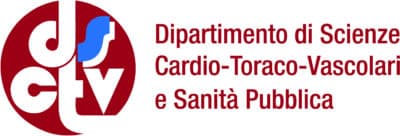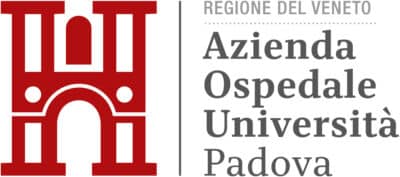

The Master in Management of Surgical Cases and Territory/Hospital Integrated Pathways: Models, Methodologies, Research, and Application of AI, trains professional with specific Case and Care Management competences in care, preventative, management, organizational, educational, and rehabilitative settings.
Purpose of the course is ensuring continuity of care between hospitals and territories, managing home and local structure care, by meeting the manifest and unexpressed patient needs, with the involvement of their family, whenever possible.
The Master in Management of Surgical Cases and Territory/Hospital Integrated Pathways: Models, Methodologies, Research, and Application of AI trains professionals capable of taking over the patient and the family in a global manner, managing care and assistance procedures, and supporting the multi-professional and multi-disciplinary team and the family, both in hospitals and on the territory.
A peculiar setting, where the coordination and integration of several care professionals dealing with the patient and their family must be ensured.
The Master in Management of Surgical Cases and Territory/Hospital Integrated Pathways: Models, Methodologies, Research, and Application of AI, forms professional figures, such as Case Manager and Care Managers. The selection is based on qualifications, according to the specifications in the Master announcement.
Given its blended mode, with on-demand lessons, the course was designed for students and professionals who wish to conciliate other activities and professions with the need to qualify or specialize themselves further.
After obtaining the title, professionals will be able to work in hospital and territorial units that deal with taking over and transition processes from one care setting to the next, in territorial operating hubs, integrated and in continuity of care hubs.
The Master in Management of Surgical Cases and Territory/Hospital Integrated Pathways: Models, Methodologies, Research, and Application of AI, provides in-depth knowledge on the following topics:
CLINIC AND ORGANIZATION
- Assessing patients with advanced techniques
- Using scales to assess neuromotor, respiratory, cardiocirculatory, and cognitive functions and disabilities
- Improving care quality through specific interventions
- Communicating effectively with patients (health literacy)
- Conducting motivational interviews to increase the willingness to change
- Analysing the psycho-social dimension of care and rehabilitation needs
- Assessing the emotional and social impact of chronic illnesses
- Preventing or contrasting psycho-social distress of fragile patients and their families
- Working in teams with an effective communication and counselling
- Coaching, tutorship and change management
- Managing the burden of the illness and of the family
- Exploring instruments to assess the patient’s functional, psychological, physical and social well-being
- Proving the effectiveness of a multi-dimensional assessment as an inter-professional diagnostic-therapeutic approach
- Using multi-dimensional assessment to plan and implement the PAI
- Calgary Family Assessment Model (CFAM)
- Calgary Family Intervention Model (CFIM)
CASE MANAGEMENT AND CARE MANAGEMENT
- Managing complex healthcare and social-care paths
- Taking over a patient and customized treatment planning notions
- Role of the multidisciplinary team, with problem-solving, territorial triage, group management and conflict resolution skills
- Connected Care: use of inter-operability and care path governance technologies
- Activating integrated paths with hospitals, the territory, at home, and with the family
- Education and communication: promoting health, therapeutic education, life skills, self-care and care models
- Innovative approaches: Care Management in complex patients, Chronic Care Model, Missed Nursing Care, Enhanced Recovery After Surgery
CLINICAL RESEARCH, EPIDEMIOLOGY AND ARTIFICIAL INTELLIGENCE (AI)
- Planning and managing protocols, procedures and guidelines for clinical research and epidemiology, by focusing on the use of AI
- PDTRA (protocols, procedures and guidelines) development and management
- Pharmacovigilance, therapeutic adherence, and LASA drugs
- Research ethics and bioethics
- Systematic review of literature and production of guidelines
- Clinical research: planning, implementation, qualitative and quantitative
- Epidemiology: evaluative and clinical
- HTA (Health Technology Assessment)
- IA: generative, machine learning, text mining, predictive models
- Monitoring and surveillance of adverse events
- Predictive and proactive systems
- Promoting safety and appropriate care
- Developing AI instruments for data analysis and event prevision
- Improving the quality of healthcare and the patients’ outcome
In order to ensure an efficient and complete internship opportunity, internships will be carried out by taking into account the preferences and the best learning perspective for students coming from North-Eastern Italy, at the hospital and district units of AULSS 6 Euganea, Istituto Oncologico Veneto IRCCS, and University Hospital of Padova, with the option of activating additional internship sites on demand on the national territory, through suitable partnerships, for students coming from other areas of the Country (to be evaluated during the course).
The competences and experiences of the Biostatistics, Epidemiology, and Public Health Unit in the organization of online Master courses, in AI applications and in clinical research – one of the crown jewels of the University of Padua – become excellent learning opportunities in this Master. The know-how is made available to students in a concrete manner, ensuring its application in project works and in the theory to practice transfer.
A few examples:
- Monitoring Patients Reported Outcomes after Valve Replacement Using Wearable Devices: Insights on Feasibility and Capability Study DOI: 10.3390/ijerph18137171
- Usability and Accuracy of a Smartwatch for the Assessment of Physical Activity in the Elderly Population DOI: 10.2196/20966
- Knowledge assessment among subjects with chronic venous leg ulcer in outpatient setting: Translation and adaptation of a tool to identify subjects at risk of poor understanding DOI: 10.1111/wrr.13107
- Use of Machine Learning Techniques for Case-Detection of VZV Using Routinely Collected Textual Ambulatory Records DOI: 10.2196/14330
- Paediatric Injury Surveillance From Uncoded ED Admission Records in Italy: Machine Learning-Based Text-Mining Approach DOI: 10.2196/44467
The Master faculty includes multiple stakeholders, with proven experience in the case management and care management field. Among them, students will find case managers with a broad experience in managing the processes and paths treated during the course, professionals involved in multiple regional hospital-territory integration development processes, coordinator of the Home Care Services, primary care doctors, Home Care and Palliative Care nurses, psychologists, patients, caregivers, managers and scholars.
The general ranking of merit for the academic year 2025/26 will be published on the Italian page of this Master according to the timing provided in the Call.
Information
FAQ
The Master will be held in blended mode: lessons can be followed on remote supports, while the internship section will be in-person only.
During the remote section, the course may be followed also by students working full-time jobs, since it will be provided on demand on the Moodle multimedia platform of the University of Padua. Video-lessons will include on-demand homework to test the competences acquired.
The Master opening day and final dissertation will be held through a live session on remote. Interaction between students and professors will be facilitated through Moodle Forum.
Attendance is mandatory, and in order to obtain the title, 70% of the online lessons must be completed, along with the minimum hours of internship.
- Students with disabilities between 66% and 100%, or certification pursuant to Law no. 104, will be exempted from paying the enrolment fee, and will be only required to pay the pre-enrolment fee, the insurance fee, and stamp duties.
- PA and top grades: PA employees enrolling in our Master, will enjoy a €330 reduction on the second registration instalment. Moreover, the PA Department will award 50% of the enrolment fee paid by the student. For further information, refer to the Protocol pages, on the PA Department institutional website:
https://www.funzionepubblica.gov.it/formazione/pa-110-e-lode https://presidenza.governo.it/AmministrazioneTrasparente/Sovvenzioni/
CriteriModalita/DFP/PA110eLode/DcrCD_20230808_criteriPA110.pdf - University staff with an open-ended employment contract may enrol in the course. The enrolment fee for University Technical-Administrative Staff is equal to the minimum enrolment fee, as established by Article 24, p. 1 of the University Regulation for Master Courses, Post-Graduate and Higher Education Courses of the University of Padua, and is equal to 20% of the fee. If the staff with open-ended labour contract possesses the requirements to enrol in the Course, once the Master is over, they will obtain the related Title or Diploma, or, if they do not possess the selection requirements, they may attend as Auditors and obtain an Attendance Certificate.
The Project Work consists in a final original thesis, concerning one of the topics covered during the Master, and is completed on the online platform, as agreed with the tutor. Project Works include literature reviews, data processing, data collection and summary, clinical research projects, etc. During the Project (at the end of the lessons until the title awarding session), students will be flanked by a tutor, who will guide them throughout the process. At the end of the course, students will present their Project Work before an on-line committee on the Zoom platform.
The Master admission selection is based on qualifications only. The selection method is described on the Master announcement.
Apart from providing video lessons, the professors will provide, through the Moodle platform, texts, scientific publications, lecture notes, and other material, to explore the topics presented and to support individual study. Moreover, students have access to all the resources online and at the “Vincenzo Pinali” Medicine Library.

